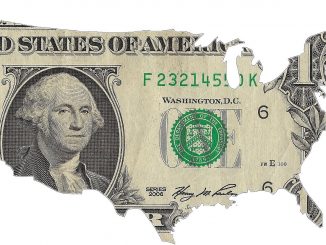
Howard Lutnick, CEO of Cantor Fitzgerald and soon-to-be U.S. Commerce Secretary under President-elect Donald Trump, is reportedly deepening his firm’s ties with Tether (USDT), the issuer of the world’s largest stablecoin, USDT. According to Bloomberg News, Lutnick is in discussions to launch a significant $2 billion project aimed at lending dollars against Bitcoin (BTC-USD) collateral. This venture could potentially expand into tens of billions of dollars, showcasing a strategic move towards integrating traditional finance with the burgeoning cryptocurrency market.
Cantor Fitzgerald’s existing relationship with Tether involves managing billions in U.S. Treasuries that back the USDT stablecoin, a partnership that has proven lucrative, generating tens of millions in annual revenue for Lutnick’s firm, Bloomberg reported. This collaboration not only enhances Tether’s credibility by associating it with a reputable Wall Street firm but also positions Cantor Fitzgerald at the forefront of the crypto-financial intersection.
Lutnick’s nomination to lead the Commerce Department, announced by Trump, places him in a pivotal position to influence U.S. trade and tariff policies, alongside managing the U.S. Trade Representative’s office. This role could have significant implications for cryptocurrency regulation, given Lutnick’s open support for digital currencies. His leadership at the Commerce Department, which handles a wide range of services from promoting job creation and economic growth to ensuring fair trade practices, could potentially steer policy towards more crypto-friendly environments, reflecting his personal and professional advocacy for Bitcoin and stablecoins like Tether.
The implications of this partnership and Lutnick’s new governmental role are multifaceted. On one hand, it might signal a warming of U.S. policy towards cryptocurrencies, potentially leading to clearer regulations that could foster innovation and integration of digital assets into mainstream finance. On the other hand, critics might raise concerns about conflicts of interest, especially considering Cantor Fitzgerald’s direct financial involvement with Tether, which could influence policy-making in ways that benefit Lutnick’s commercial interests.
As the cryptocurrency ecosystem continues to evolve, the intertwining of significant political appointments with key players in the crypto market like Lutnick could either stabilize or disrupt the regulatory landscape. The broader crypto community and investors will be watching closely how these developments unfold, particularly how they impact the stability and acceptance of stablecoins like USDT in both domestic and international markets. This strategic alignment of business and politics underlines a unique moment where traditional finance and digital currencies are not just intersecting but potentially shaping each other’s future.
- Bulenox: Get 45% to 91% OFF ... Use Discount Code: UNO
- Risk Our Money Not Yours | Get 50% to 90% OFF ... Use Discount Code: MMBVBKSM
Disclaimer: This page contains affiliate links. If you choose to make a purchase after clicking a link, we may receive a commission at no additional cost to you. Thank you for your support!




Leave a Reply